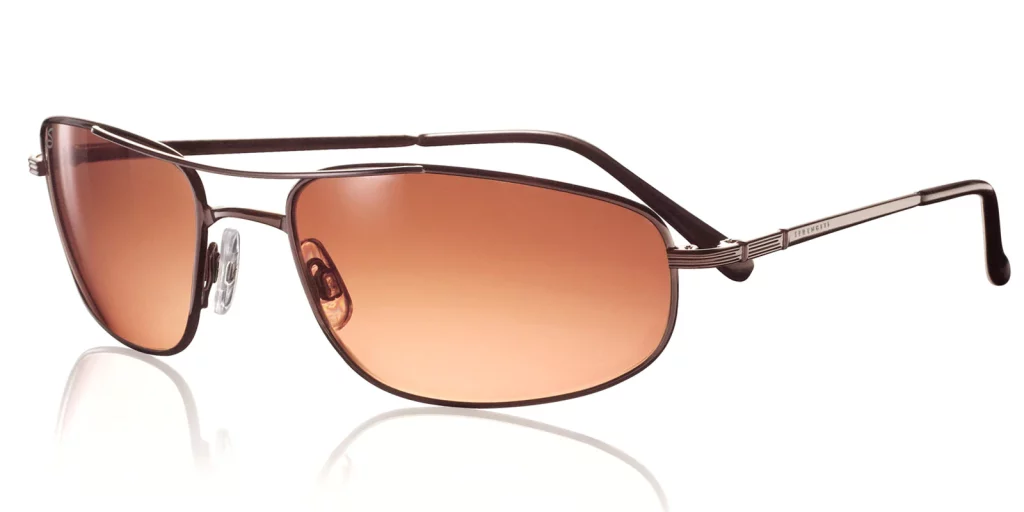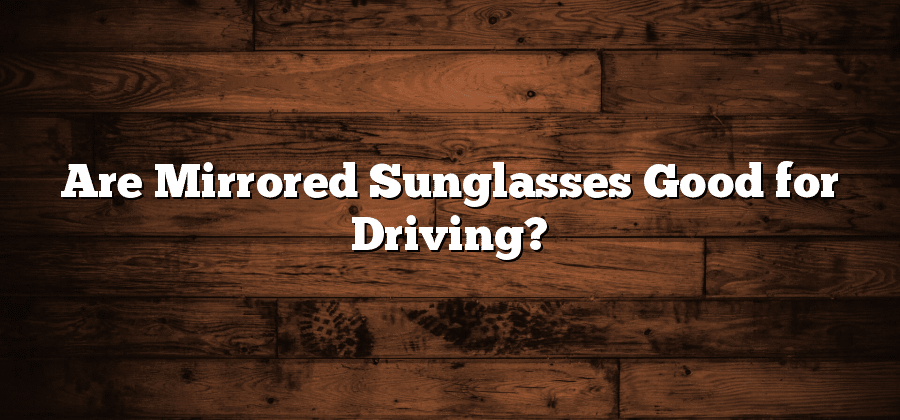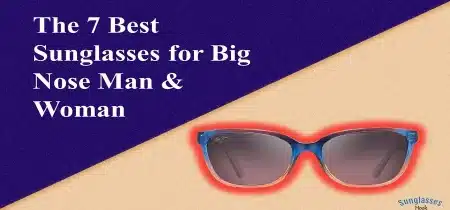When it comes to driving, one factor that is often overlooked is the type of eyewear used, particularly sunglasses. The issue of using mirrored sunglasses while driving can be a point of controversy. To resolve this debate, it’s vital to consider various aspects such as visual clarity, protection from glare, comfort, and legal implications. Let’s find the answer to the question: Are Mirrored Sunglasses Good for Driving?
The Science Behind Mirrored Sunglasses

What are Mirrored Sunglasses?
Mirrored sunglasses, also known as mirror-coated or flash lenses, are glasses with a reflective optical coating on the outer surface. This coating reduces the amount of light passing through the lens by 10–60%, depending on the coating’s thickness and density.
How Do They Work?
Mirrored sunglasses work by reflecting light away from your eyes instead of allowing it to pass through the lenses. The mirrored surface efficiently reflects a significant amount of light, limiting its direct entry into your eyes. This makes them highly effective at cutting down on the intensity of light and glare.
Pros and Cons of Mirrored Sunglasses for Driving
Before using mirrored sunglasses for driving, it is essential to know their advantages and disadvantages to make an informed decision.
Pros
Superior Glare Reduction
While all sunglasses provide some degree of glare reduction, mirrored sunglasses excel in this regard. They’re ideal for situations with intense light conditions, such as driving in summer when the sun’s glare off vehicles and road surfaces can be severe.
Enhanced Visual Comfort
Because mirrored sunglasses reflect more sunlight, they reduce the strain on your eyes. This is beneficial while driving for long periods, especially in bright conditions, as it can minimize fatigue and improve comfort.
Stylish Appearance
While this doesn’t impact driving directly, many users appreciate the bold, stylish appearance of mirrored sunglasses. They are available in a range of colors and designs, allowing you to express your personal style while on the road.
Cons
Color Distortion
One of the main disadvantages of mirrored sunglasses is the potential for color distortion. Some users find that these lenses can alter the perception of colors, which could potentially affect a driver’s ability to distinguish traffic light signals.
Scratches and Damage
Mirrored lenses are more susceptible to scratches and damage than non-mirrored ones. This is because the reflective coating is delicate and can degrade over time, particularly if not handled with care. Damaged lenses can negatively affect visibility, which is crucial while driving.
Limited Visibility in Low Light
Mirrored sunglasses, while excellent in bright light conditions, are not suitable for low light conditions. They can reduce visibility when driving in the evening, at night, or in heavily shaded areas.
Legal Implications of Mirrored Sunglasses
In some jurisdictions, using mirrored sunglasses while driving may have legal implications. It’s always crucial to verify local laws and regulations, as some areas may have restrictions on lens colors or reflectiveness due to concerns about obscuring a driver’s eyes from view.
Alternatives to Mirrored Sunglasses
If you’re concerned about the potential drawbacks of mirrored sunglasses, consider alternatives like polarized or photochromic lenses.
Polarized Sunglasses
Polarized sunglasses reduce glare and reflections, especially from horizontal surfaces like water or a road. They provide excellent visibility and color perception, making them a good choice for driving.
Photochromic Lenses
Photochromic lenses, or “transition lenses,” automatically darken in response to UV light. They adjust to varying light conditions, making them a versatile option. However, their reaction time to changing light conditions can be slower, which might not be ideal for quick changes in sunlight when driving.
Conclusion
Mirrored sunglasses can be a good choice for driving, especially in bright light conditions, due to their superior glare reduction and enhanced visual comfort. However, they have potential drawbacks, such as color distortion and reduced visibility in low light conditions.
Whether or not mirrored sunglasses are the best option for you depends on several factors, including your visual comfort, personal style, driving conditions, and local regulations. It’s always recommended to try different types of lenses in various situations to find the best fit for your needs. Remember, the goal is to ensure both comfort and safety while on the road.



Recent Comments